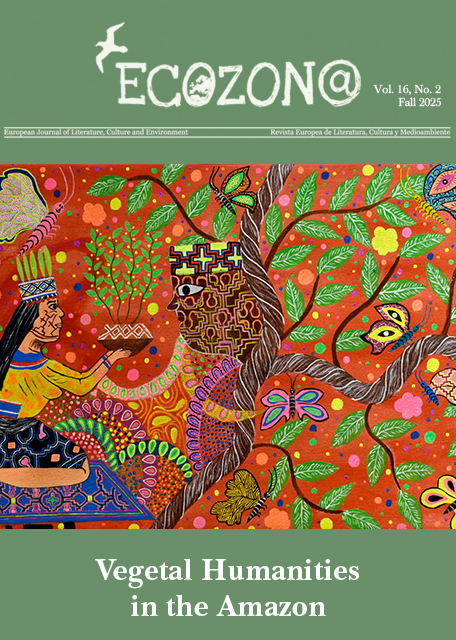“There is no such thing as ‘away’”: An Inquiry-Based Approach to Developing Learners’ Sustainability Literacy in the EFL Classroom
DOI:
https://doi.org/10.37536/ECOZONA.2021.12.1.4012Parole chiave:
e-waste, sustainability literacy, inquiry-based learning, NigeriaAbstract
The explosion of electric and electronic waste (e-waste) is one of the major environmental challenges of our time. Only a small amount of e-waste is properly disposed of or recycled, with most e-waste ending up in landfills or incinerators, or being exported to developing countries where it represents an even greater hazard to both the environment and human health and life. This article tackles this issue in the context of English as a foreign language teaching, arguing that exploring the global streams of e-waste and its environmental impacts at a time when there is an unprecedented demand for electric and electronic devices in all areas of life, including education, can help develop learners’ sustainability literacy. The first part of the paper looks at the concept of e-waste, its economic implications, and the social impacts arising from e-waste (disposal). The ensuing part then looks at e-waste in the context of global sustainability initiatives which, for example, aim at encouraging individuals to become more committed to sustainable lifestyles and thus help to mitigate climate change. The following sections are of a more practical nature, exploring the potential of the topic for the English as a foreign language (EFL) classroom, arguing that English language teaching no longer solely focuses on developing learners’ language skills but also a plethora of other competences that allow learners to participate in global (environmental) discourses. The practical classroom example takes an inquiry-based approach, which not only allows learners to pursue their own interests but also develops their critical thinking and problem-solving skills. In this example, Nigeria serves to illustrate the devastating effects of (illegal) e-waste (disposal) and the complex socio-economic aspects of e-waste (mis-)management.
Downloads
##submission.downloads##
Pubblicato
Fascicolo
Sezione
Licenza
Authors who publish with this journal agree to the following terms:
a) Authors retain copyright and grant the journal right of first publication with the work simultaneously licensed under a Creative Commons Attribution License that allows others to share the work with an acknowledgement of the work's authorship and initial publication in this journal (CC BY-NC for articles and CC BY-NC-ND for creative work, unless author requests otherwise.
b) Authors are able to enter into separate, additional contractual arrangements for the non-exclusive distribution of the journal's published version of the work (e.g., post it to an institutional repository or publish it in a book), with an acknowledgement of its initial publication in this journal.
c) Authors are permitted and encouraged to post their work online (e.g., in institutional repositories or on their website) prior to and during the submission process, as it can lead to productive exchanges, as well as earlier and greater citation of published work (See The Effect of Open Access).










